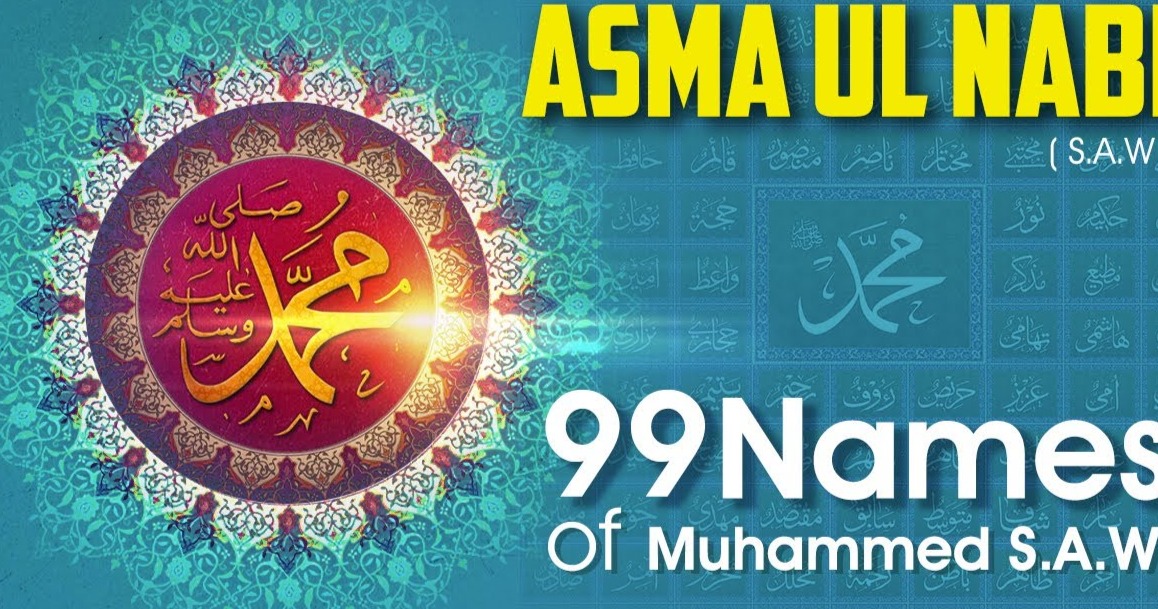As far as Islam is concerned, Prophet Mohammad pbuh is not described by anything that can be compared with him. As the last prophet of God, his life, character, and teachings continue to serve as a model for over a billion Muslims across the world for more than 1400 years. And as most people are aware of the 99 names of Allah, not many are aware that Allah's final Prophet Muhammad (PBUH) also has 99 beautiful names and attributes, each packed with a very special meaning and insight into his noble being and role. These 99 names for Muhammad are a source of spiritual guidance for the faithful and deep reflection and love.
Significance of the 99 Names of Muhammad
99 names of Muhammad are not random titles. They demonstrate his character as a messenger, chief, family man and servant of God. Even as the names of Allah indicate divine attributes, the names of the Prophet convey his compassion, truthfulness, wisdom, forbearance and 11 characteristic leadership. These names are based on the Qur'an and Hadith, as well as the opinions of thousands of years of Muslim scholarship.
The recitation and contemplation of these names enable Muslims to establish an emotional and spiritual relationship with the Prophet. It also gives an outline of his practice of the perfect human character in various aspects of life. For example, the names The Chosen One (Al-Mustafa) or The Trustworthy (Al-Ameen) bring to mind his chosen nature and moral soundness.
A Mirror for Mercy and GuiteANCE Divine.
One of the most powerful things about the 99 names of Muhammad is that they reflect some of Allah’s attributes in a human form. For instance, the Prophet is called Rahmatul-lil-Alameen (Mercy to the worlds) after the divine name Ar-Rahman (The Most Merciful). This name underscores the mercy and compassion the Prophet showed to all, friends and enemies, human beings and animals, rich and poor.
Another is Al-Hadi (The Guide), echoing the divine name of Al-Hadi. Whereas Allah is the instructor, the Prophet was the embodiment of divine education in the human body. In conduct, he led mankind to justice, benevolence, and religion.
Character and Conduct Embodied in Names
Most of the 99 names of Muhammad are derived from his moral attributes and behave. AS- Sadiq and Al-Ameen are his appellations observed by the people even before he was bestowed with the divine message. These are the names that prove that people had faith in him, no matter which religion.
<=At-Tayyib and Az-Zaki At-Tayyib (The Good) and Az-Zaki (The Pure) describe his personal hygiene as well as spiritual cleanliness, which are among the most important ideals in Muslim society. His justice, humbleness, and patience is found in his names Al-Haleem (the Forbearing) and AlKareem (the generous). These are not only descriptions; they are invitations to Muslims to emulate the behavior of the Prophet.
His Role in Society and the Ummah
The Prophet Muhammad (PBUH) was not only a spiritual leader; he was a mender, a judge, a leader, a teacher. Such names as An-Nabi (The Prophet), Ar-Rasool (The Messenger) and Ash-Shaheed (The Witness) are indicative of his role to convey the message of Allah to humanity and to act as a witness against it.
Other titles, like Imam Al-Muttaqeen (Leader of the God fearing) and Sayyid Al-Mursaleen (Chief of the Messengers) reflect his high rank with respect to other prophets and his position within the Ummah (community). Those titles are a reminder that in Islam leadership is based on service, responsibility, and humility, the same qualities the Prophet displayed during his lifetime.
The Devoted Husband and Loving Father
The 99 descriptive names of Muhammad are also won by his close relationships and his part in the family. Abul Qasim (Father of Qasim) serves as a reminder of the fact that he is someone’s father, while names such as Az-Zawj As-Salih (The Righteous Husband) celebrate those loving and respectable relationships he shared with his wives.
He dealt kindly and gently with children and urged kindness among households. His domestic life was a helpful exemplar of the correct relationship between religion and earthly duties. With domestic life so harried or strained in an age of anxiety and extremism, meditating on these names might realign our priorities to prophecy.
Divine Merits of Offering the Names
Just as there are spiritual rewards for memorizing the names of Allah, there is a special mentioned reward for those who repeat these 99 names in order to increase love and connection with the Prophet. Most scholars and Sufis in the past reaffirmed that learning the names of Prophet instructs one regarding how to become good human beings.
When these names are read, they melt the heart, increase knowledge and keep us focused on his example with all our choices. Things work out just as they should as we call upon the Prophet with his names and call on his attributes, whether in a salaat, sitting with the Quran reflecting, or just meditating.
Conclusion
Muhammad (PBUH), the 99 names and beyond. These are no ordinary names; they are the keys to farms and the secret doors to spaces within the history of Islam’s most honoured man. Each name signifies a facet of his beautiful personality and encourages us to reflect these qualities in our own lives. It is a time of global uncertainty, and the Prophet’s universal example provides a roadmap for peace, justice, and personal excellence.
Rimsha is an expert guest blogger with a strong passion for creating impactful content across diverse niches. With years of experience in content marketing and digital outreach, she specializes in building high-quality backlinks through well-researched guest posts. Rimsha currently works at a leading hybrid solar inverter company based in Pakistan, where she combines her writing skills with a deep understanding of renewable energy solutions.

